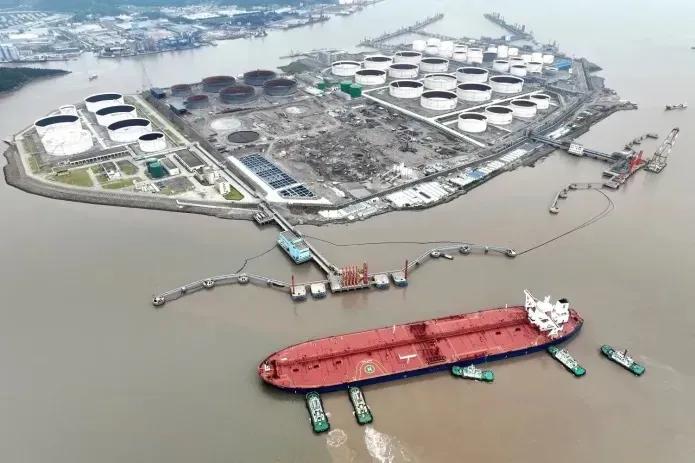José Daniel Salinardi for Poder & Dinero and FinGurú
China seems to be rapidly accumulating materials at a time when raw materials are costly, likely due to geopolitical concerns, such as the possibility that a hostile U.S. president might block crucial supply routes.
With the possibility of Trump returning to power, it is preparing for a more hostile environment. It could face export restrictions on food and metals from the United States and other suppliers like Argentina, Brazil, Australia, and Chile. Most of China's raw material imports pass through a few straits that the United States could block with military ships.
Another point that catches analysts' attention is that it is expanding its storage infrastructure, both public and private. Since 2020, its crude storage capacity has increased from 1.7 billion to 2 billion barrels, and its underground gas storage capacity has grown to 15 billion cubic meters, with a goal of 55 billion by next year. The construction of tanks for liquefied gas along its coast is not a minor detail in this regard. JPMorgan Chase estimates that the total gas storage capacity will reach 85 billion cubic meters by 2030.
The Chinese government has stopped publishing data on many raw materials. The U.S. Department of Agriculture estimates that China's wheat and corn reserves will represent 51% and 67% of global stocks at the end of the current growing season, enough to cover at least a year of demand. Soybean reserves have doubled since 2018 and are expected to reach 42 million tons.
Not only basic products and fuel, but also metals. Tom Price from Panmure Liberum estimates that China's stockpiling since 2018 could cover between 35% and 133% of its annual demand, depending on the metal. By late spring, China had 25 billion cubic meters of gas stored, enough for 23 days of consumption, and this coverage is expected to reach 28 days by 2030.
This storage worries Americans not only because of its potential impact on inflation by raising raw material prices, but also because the supplies that China is stockpiling could be necessary in a prolonged conflict, such as a blockade of Taiwan. Gabriel Collins, a former U.S. Department of Defense analyst, notes that this, along with China's military buildup, is worrying. However, for now, the hoarding appears to be a defensive measure, as it is not yet at the scale needed to ensure security in an open conflict. U.S. officials must hope this does not change in the coming years.
José Daniel Salinardi
Certified Public Accountant. Faculty of Economic Sciences of the University of Buenos Aires
Journalistic Producer of Poder & Dinero, and Panorama 360 (UCL Televisión. Latin America, United States, and Spain)

Comments